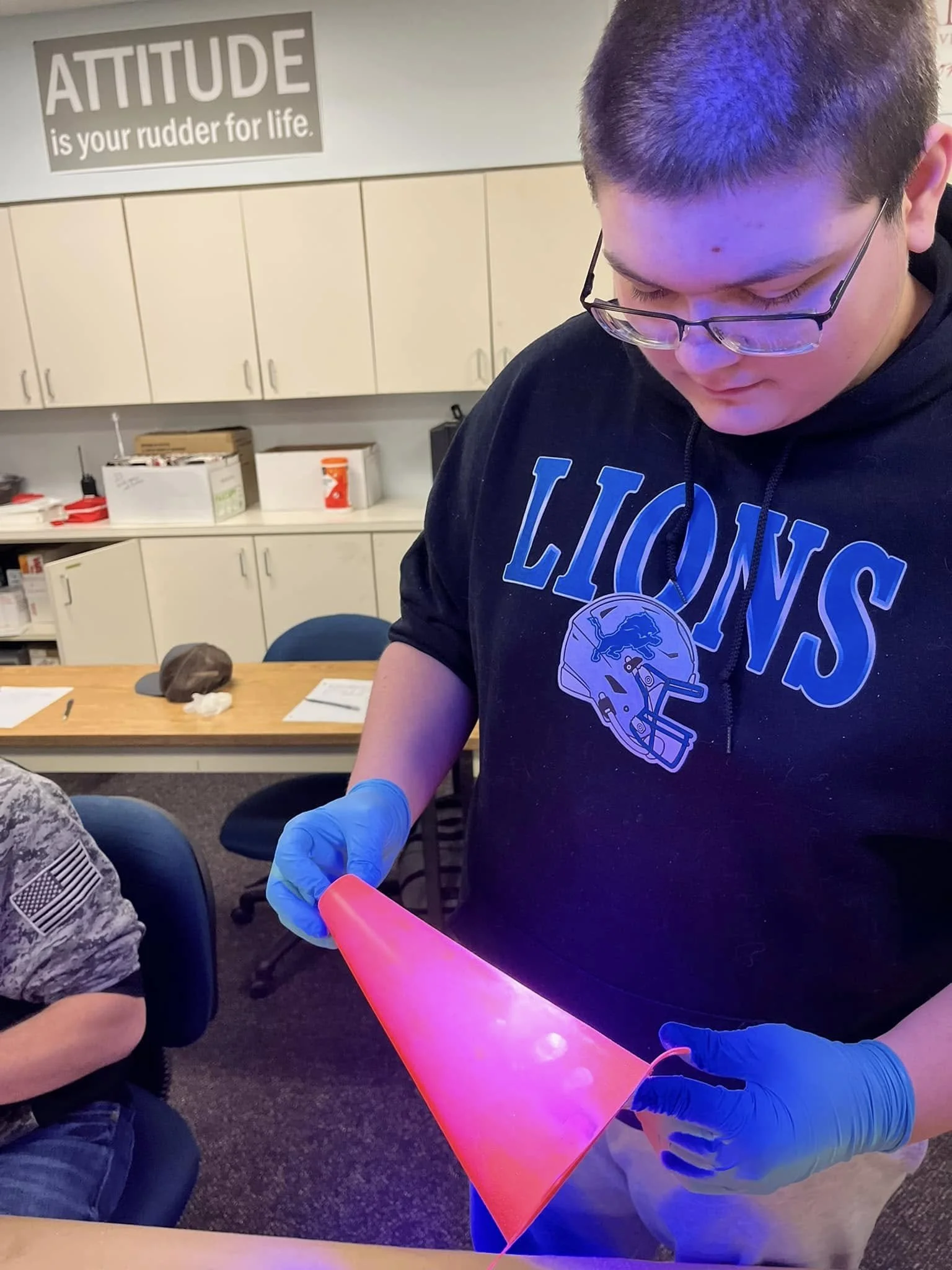Public Safety
Why Public Safety?
People depend on public safety professionals to protect their lives and property. These duties are performed in a variety of ways by a variety of individuals. In most jurisdictions, they are expected to exercise authority when necessary, on duty or off. The work can be dangerous, stressful and take a toll on one’s personal life. The opportunity for public service through law enforcement and related careers is attractive to many because the job is challenging and involves much personal responsibility. As the world becomes more security-conscious and concern about crime climbs, the demand in the field should only increase.
Potential Careers
Participation in Public Safety can help prepare you for jobs in areas like:
Police Officer
Military Police
Conservation Officer
State Trooper
Sheriff’s Deputy
FBI
Homeland Security
Corrections
Parole/Probation Officer
Coast Guard
Border Patrol
ATF
DEA
Canine Handler
Bomb Squad
Security
Marine Patrol
Security
Attorney
Attorney’s Assistant
911 Dispatcher
Detective
Judge
Evidence Technician
Emergency Support/SWAT team
Juvenile Court Counselor
Investigation - Private, Industrial, Crime Scene and Social Services
Want to help people in your career? Start here.
The world depends on public safety professionals like few others. The potential jobs in the field run across a wide spectrum, but one common thread unites them all: helping people.
Course Overview
The program allows students to explore careers in security, law enforcement, corrections and the courts, emergency services and law/legal services. Other potential careers include federal investigators, security, corrections and prison officers, as well as legal professions. The instructor is active in law enforcement and demonstrates and trains students in current police techniques, including fingerprinting, report writing, search and seizure, First Response and civil and criminal law. Material is presented through a textbook, videos, lecture, activities and guest speakers. The course covers law enforcement from the hiring process to employment to on-duty tasks. It is possible to earn articulated college credit while completing this course.
Primary Units of Instruction
(lecture, demonstration and practice):
Criminal Law
Investigation
Forensics
Human Relations
Work Ethics
Crime Prevention
Traffic Control
Patrol Techniques
Public Relations
Basic Rights and Responsibilities
First Aid, CPR, & First Responder
Hiring Process/Employment
Arrest and Search Procedures
Report and Desk Duties
Face-to-Face Communication
Criminology and Psychology
Personal Health and Safety
Crime Scene Process
Written Communication
Electronic Communication
Court Procedures
Length of Program:
One Year, two semesters; second year is optional for qualified students
Program Schedule:
A.M. Session - 8:30 a.m. - 10:30 a.m.
P.M. Session - 12:30 p.m. - 2:30 p.m.
Ready to Respond: Public Safety Video
Learning Environment
Time is spent primarily in the classroom, including weekly physical training. Students have the opportunity to experience the challenge of working in the public sector and the importance of community involvement. Guest speakers provide first-hand knowledge and experience. Students also have the opportunity to obtain American Heart Certifications in Adult CPR, Infant CPR, Standard First Aid and Blood borne Pathogens.
Is it for me? It is if you…
...have good writing/speaking skills
...are detail-oriented
...are organized
...are friendly and caring
...can accept responsibility
...enjoy interacting with public
...work well in a team
...work well under pressure
...are not afraid of risk/danger
Going to college? Start with CTE
College Partnerships
Davenport University
Delta College
Ferris State University
Kirtland Community College
Mid Michigan Community College
High School Credit and CTE Certification
Students may earn the state-required fourth-year math-related course credit through this program. Local schools will award high school credit upon successful completion of this program. The CTE Certificate of Completion will be awarded to students who successfully complete their programs.
What's It Like?
Instructor Brian David says: “Students enrolled in the Public Safety Program will gain the knowledge and skills necessary to become career and college ready in many areas of Public Safety and Protective Services. Students will gain an understanding of the importance of becoming a public servant, learn to work independently and as a part of a team, develop highly effective written and verbal communications and improve their leadership skills.”





